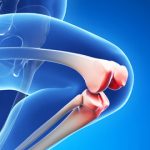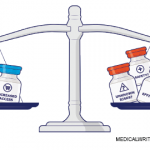A study highlights the potential of fasinumab, an anti-nerve growth factor monoclonal antibody, as a pain treatment for osteoarthritis (OA) patients. Research into the risks and benefits of this therapeutic class for OA are ongoing…


A study highlights the potential of fasinumab, an anti-nerve growth factor monoclonal antibody, as a pain treatment for osteoarthritis (OA) patients. Research into the risks and benefits of this therapeutic class for OA are ongoing…

The SELECT-EARLY MTX-controlled trial examined the safety and efficacy of upadacitinib, a potent, reversible jakinib, as monotherapy in patients with moderately to highly active RA and poor prognostic features who are either naive for or have limited exposure to methotrexate.

Plasma microbial translocation, the composition of the microbiome and environmental factors may influence the development of autoantibodies in patients with systemic lupus erythematosus (SLE), according to a study comparing SLE patients with their first-degree relatives and unrelated, healthy controls.

A 2019 study demonstrated the benefit of a newer drug class, PCSK9 inhibitors, to help lower cholesterol in patients with statin-associated immune-mediated necrotizing myopathy…

For some patients with systemic lupus erythematosus, regular repeated treatment with rituximab may prevent disease flare, according to a study from Cassia et al.

RA patients experience a higher rate of cardiovascular disease (CVD) events than controls. In a new study, Karpouzas et al. determined that current biologic disease-modifying anti-rheumatic drug use is associated with reduced long-term CVD risk, protective calcification of noncalcified lesions and a lower likelihood of new plaque formation in patients with early atherosclerosis.
In a new study, Spiera et al. assessed the safety and efficacy of lenabasum, a synthetic, orally administered agonist of cannabinoid receptor 2 that modulates the endocannabinoid system to activate the resolution phase of innate immune responses, in diffuse cutaneous systemic sclerosis…
In a new study, Baker et al. examined reference product and biosimilar orders, comparing data from a Veterans Affairs Medical Center (VAMC) to those from an academic medical center…

Bryn Nelson, PhD |
As useful stand-ins for biologics targeting a range of inflammatory diseases, biosimilars have made significant inroads across Europe as less expensive alternatives. Denmark, for example, realized a cost savings of 64% after instituting a mandatory national switch from the originator infliximab to its biosimilar counterpart. In the U.S., however, a considerably smaller fraction of rheumatologists…
According to a new study, the prevalence of anti-nuclear antibodies (ANAs), the most common biomarker of autoimmunity in the U.S., has increased considerably in recent years among adolescents aged 12–19 years, in both sexes (especially in men), older adults (age ≥50 years) and non-Hispanic whites…